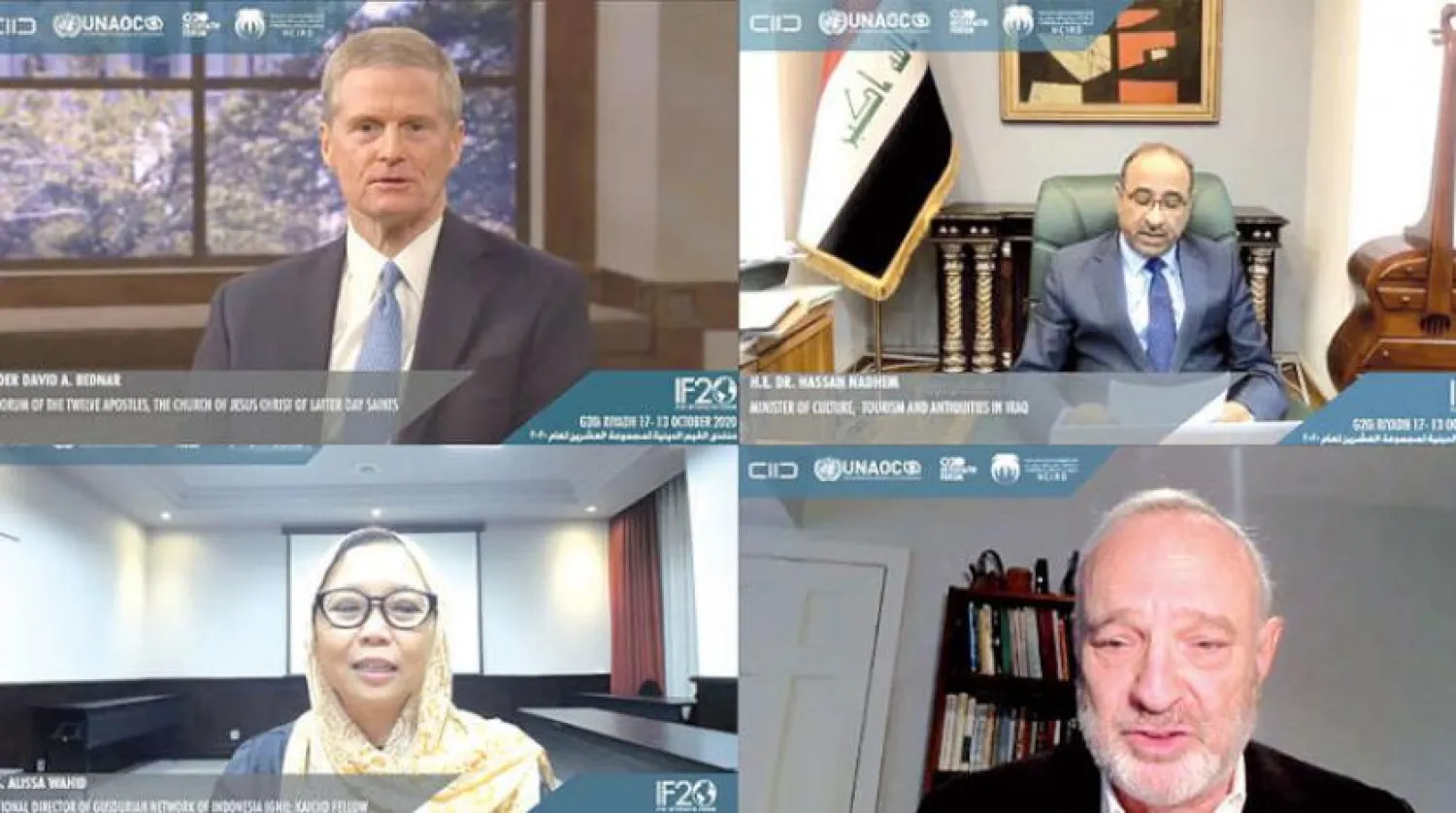The G20 Interfaith Forum on Religious Values, hosted by Saudi Arabia, convened virtually for the second day, with the participation of 500 international leaders and experts in religious and humanitarian organizations, including 130 speakers from 45 countries.
During the discussions, leaders from different countries and religions emphasized the importance of religious organizations in facing disasters and humanitarian crises.
The participants emphasized that religious societies were among the first to provide support and assistance in times of crisis, refute all types of marginalization against minorities and ensure their access to medicine and food.
The second day of the forum revolved around the Covid-19 pandemic. The main session featured eight speakers from different countries and religious and health organizations and was followed by three simultaneous panel discussions.
The first discussion was held under the title of, “Partnerships of Religious Bodies in Confronting the Covid-19 Pandemic”. The second panel discussion was on “Acting Religious Authorities and Multilateral Responses to the Pandemic Crisis: Priorities and Responsibilities,” while the third was on “Supporting the vulnerable groups in the Covid-19 pandemic.”
In the opening speech, Dr. Hassan Nazim, the Iraqi Minister of Culture, Tourism and Antiquities discussed the political, social and economic consequences of the Covid-19 outbreak and the required plans to confront them.
The Saudi Assistant Minister of Health, for his part, said while his country was recording a high rate recoveries, it was working to confront the pandemic for the long term. He pointed to Saudi Arabia’s scientific research and efforts to allocate centers to manage and face the virus crisis, as well as the establishment of AI systems to manage the health crisis and help all individuals in society without discrimination.
The spokesperson for the High Representative for the Alliance of Civilizations (UNAOC) referred to the role of religious organizations in responding to the pandemic and promoting interconnection between the societies.
Rabbi David Saperstein, the President of the World Union for Progressive Judaism, talked about the historical impact of pandemics and the need to reject discrimination against minority groups. He also underlined the importance of the forum in gathering religious leaders and promoting cooperation.









